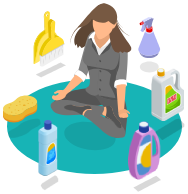
Cleaning Effectively? Know Your EN Numbers
EN stands for European Norm and is a technical standard that a product must meet when used to carry out a particular task. In many cases standards are double prefixed BS EN which means this is the UK version in English of a European harmonised standard.
The ongoing global pandemic has required us all to put our best hygiene practices in place in order to help keep everyone safe. We commonly talk about the nurses and doctors on the front line in the fight against Covid-19 however with clean and hygienic premises no longer a “nice to have” but a “must have” our cleaning teams are standing strong beside them united in a line of defence against this easily transmitted virus.
As with any good cleaning regime it is vital to ascertain how often you should clean especially in times of crisis and this can be identified by carrying out a task risk assessment. Just as important is considering the effectiveness of the products that you will use to undertake the task and achieve the desired outcomes. You may have latched on to the fact that your cleaning product needs to have a EN number to guarantee effectiveness but perhaps you’ve never dared asked why?
Before Covid-19 there was very little debate about viruses and what strength disinfectant should be in order to tackle them. However there’s now a plethora of cleaning products on the market claiming Covid-19 kill rates and businesses are required to identify which are most effective. Many are desperate for someone to explain in simple terms the additional cleaning requirements and what they need to look out for to ensure they’re buying the correct product to help keep their staff and customers safe.
Of course what you’re looking to achieve is not just a visibly clean surface but a bacteria-free virus-free one too - and because Covid-19 is believed to survive on hard surfaces such as plastics metals and glass for a considerable time choosing certified products accredited with a relevant EN number such as BS EN 1276 and BS EN 14476 whilst allowing appropriate contact times provides peace of mind that surfaces within your premises are as clean and germ-free as they can be.
How does bacteria differ from a virus?
Bacteria have single cells and are living organisms. They have a cell wall and all the elements necessary to survive and reproduce with some gaining energy from other sources.
Viruses are not considered to be a living organism because they require a host cell to survive long-term for energy and to reproduce.
What is BS EN 14476 and how is it different to BS EN 1276?
Products with BS EN number 14476 certification verifies that the solution contains antiviral ingredients required to kill viruses whereas BS EN number 1276 only covers bactericidal activity.
The BS EN 14476 European Standard applies to areas and situations where disinfection is medically indicated including areas of hygienic hand rub hygienic handwash instrument disinfection by immersion surface disinfection by wiping spraying flooding for example and textile disinfection.
Why is it important to buy a product with the BS EN 1276 accreditation?
BS EN 1276 is the European standard for the bactericidal activity of chemical disinfectants. It proves it prevents the growth and spread of harmful bacteria such as MRSA Salmonella E. Coli flu virus (H1N1) and Pseudomonas Aeruginosa.
The Food Standards Agency recommends products meet this standard for efficient and effective cleaning in catering environments. It’s also recommended in industrial domestic and institutional areas (excluding medical settings where disinfection is medically indicated except for hand hygiene).

When do I need to use both BS EN 14476 and BS EN 1276 cleaning products to eradicate germs?
The cleaning process using soap or detergent only removes germs and soiling from surfaces or objects. Germs will not necessarily be eradicated by cleaning alone however reducing them decreases their number and reduces the spread of infection.
It is the disinfection process that kills bacteria and viruses and works by applying chemicals or water at 140 degrees Fahrenheit to surfaces or objects. This process does not necessarily clean dirty surfaces or remove germs but by killing them on a surface after cleaning it can further lower the risk of infection spreading.
Cleaning products categorised with EN number 14476 and EN number 1276 tackle both bacteria and virus activity providing you with the peace of mind that you’re choosing wisely to help combat the spread of infection.
In summary
To be sure that you’re using products that are fit for purpose quickly ascertain what you are trying to achieve - is it just a cleaning task or do you need to kill bacteria or a virus or both?
Once this has been established " source products that clearly state the relevant EN number(s) for total peace of mind.
Recommended Products
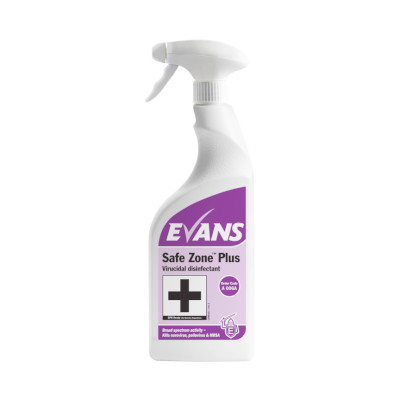
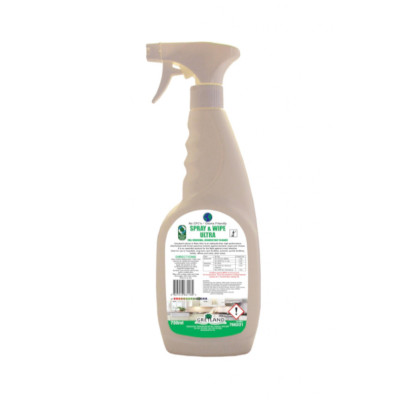
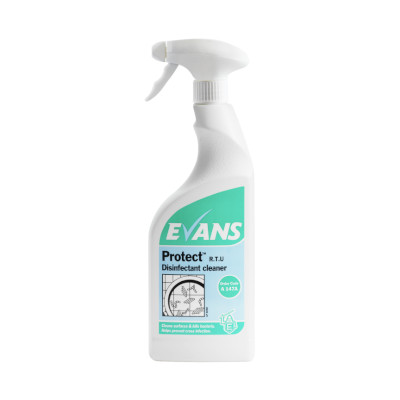
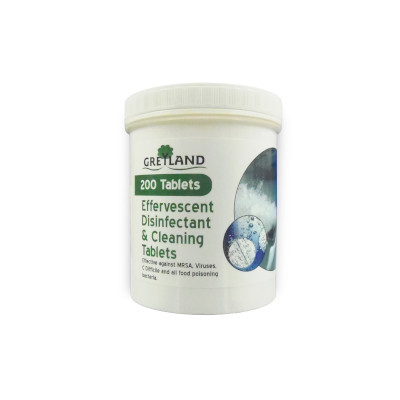
Stay Connected
Want to hear more from The Cleaning Collective? Sign up to our mailing list for the latest offers and news
Stay Connected
Stay connected and be the first to know about our latest products, special offers, and exciting news:The Cleaning Blog
Want to learn more about cleaning? From the latest cleaning and hygiene news to handy how-to guides, why not check out our most popular blog categories.Stay Connected
Stay connected and be the first to know about our latest products, special offers, and exciting news: